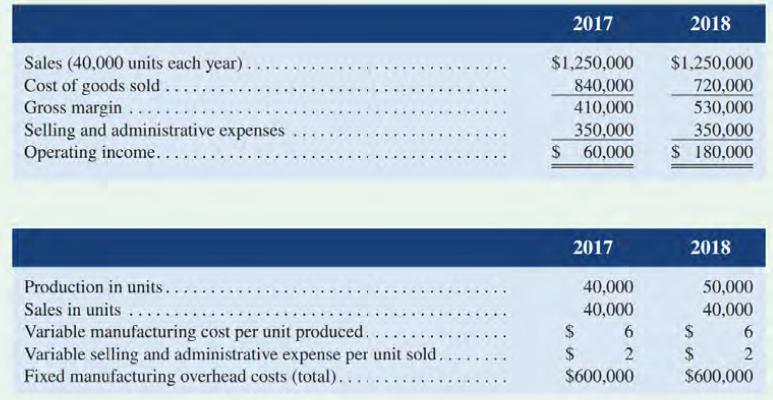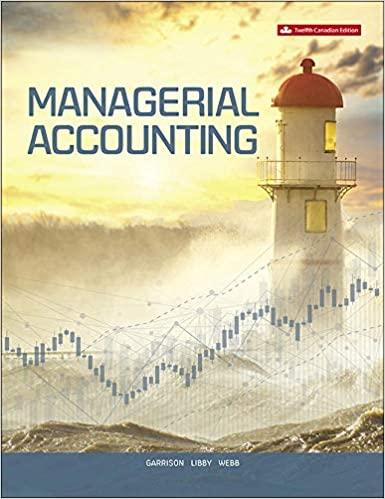There must be something wrong with these statements! exclaimed Hugh Richards, president of Ajax Inc. 'They just
Question:
"There must be something wrong with these statements!" exclaimed Hugh Richards, president of Ajax Inc. 'They just don't make sense. We sold the same number of units this year as we did last year, yet our profits have tripled! Who messed up the calculations?" Ajax Inc. is a medium-sized supplier of plastic components to the automobile industry and has been in business for 25 years. Sales forecasting has been relatively easy to do in the past since Ajax has had long-term, single-sourcing relationships with most of its customers. In 2018, however, there was a threat of a strike at one of Ajax Inc.'s major raw materials suppliers. For that reason, Ajax management decided to purchase more raw materials and produce more components in 2018 than actually required, in anticipation of raw materials shortages in 2019. Manufacturing equipment was typically operated below capacity, so this boost in production was possible without incurring significant increased fixed manufacturing costs. The income statement and production reports to which Richards was referring are shown below:

Ajax Inc. uses absorption costing and applies fixed manufacturing overhead costs to its only product on the basis of each year's production. (Thus, a new fixed manufacturing overhead rate is computed each year.)
Required:
Take on the role of the CFO of Ajax Inc. Write a memo to Richards to explain why the operating income for 2018 was higher than for 2017 under absorption costing, although the same number of units was sold in each year. Make sure to include the following:
1. A contribution format income statement for each year, using variable costing. Be sure to reconcile the variable costing and absorption costing operating income figures for each year.
2. A brief discussion of the advantages and disadvantages of variable over absorption costing for internal reporting purposes.
3. A discussion of the ramifications of returning to the "normal" level of production in the coming year.
4. A recommendation: Should the company continue to "overproduce" in coming years to boost operating income?
Step by Step Answer:

Managerial Accounting
ISBN: 9781260193275
12th Canadian Edition
Authors: Ray H. Garrison, Alan Webb, Theresa Libby





